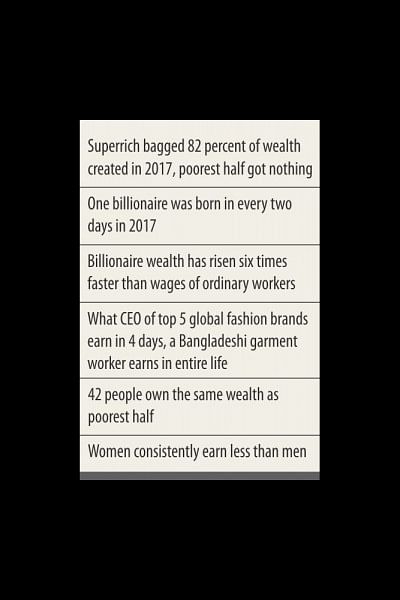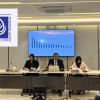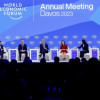Rich-poor gap widens further

Eighty-two percent of the wealth generated last year went to the richest one percent, while 3.7 billion people who make up the poorest half got nothing, according to a new Oxfam report.
It reveals how the global economy enables the super-rich to accumulate vast wealth at the expense of hundreds of millions of people who are struggling to survive on poverty pay.
The report “Reward Work, Not Wealth” says the year 2017 saw an unprecedented increase in the number of billionaires at a rate of one in every two days.
“Billionaire wealth has risen by an average of 13 percent a year since 2010 - six times faster than the wages of ordinary workers, which have risen by a yearly average of just two percent,” it reveals.
The report was launched early yesterday when political and business elites gathered for the World Economic Forum scheduled for January 23-26 in Davos, Switzerland.
It takes just four days for a CEO from one of the top five global fashion brands to earn what a Bangladeshi garment worker will earn in entire lifetime, mentions the report. It takes slightly over one workday for a CEO in the US to earn what an ordinary worker makes in a year, it adds.
As per the Oxfam report, it would cost $2.2 billion a year to increase the wages of all 2.5 million Vietnamese garment workers to a living wage. “This is about a third of the amount paid out to wealthy shareholders by the top five companies in the garment sector last year.”
Referring to new data from Credit Suisse, it says 42 people now own the same wealth as the poorest half of humanity.
Oxfam's calculations are based on global wealth distribution data provided by the Credit Suisse Global Wealth Data Book 2017. The wealth of billionaires was calculated using Forbes' billionaires list last published in March 2017.
The Oxfam report outlines the key factors driving up rewards for shareholders and corporate bosses at the expense of workers' pay and conditions. These include erosion of workers' rights; excessive influence of big business over government policymaking; and relentless corporate drive to minimise costs in order to maximise returns to shareholders.
“The billionaire boom is not a sign of a thriving economy but a symptom of a failing economic system,” said Winnie Byanyima, executive director of Oxfam International.
She added, “The people who make our clothes, assemble our phones and grow our food are being exploited to ensure a steady supply of cheap goods, and swell the profits of corporations and billionaire investors.”
The report says women workers often find themselves off at the bottom of the heap. “Across the world, women consistently earn less than men and are concentrated in the lowest paid and least secure forms of work. By comparison, 9 out of 10 billionaires are men.”
Oxfam has spoken to women across the globe whose lives are blighted by inequality.
“Women in Vietnamese garment factories who work far from home for poverty pay and don't get to see their children for months at a time. Women working in the US poultry industry who are forced to wear nappies because they are denied toilet breaks. Women working in hotels in Canada and the Dominican Republic who stay silent about sexual harassment for fear of losing their jobs,” said Byanyima.
Oxfam calls upon the governments to ensure their economies work for everyone and not just the fortunate few.
It suggests limiting returns to shareholders and top executives, ensuring all workers receive a minimum 'living' wage that would enable them to have a decent quality of life and eliminating the gender pay gap and protecting the rights of women workers.
Oxfam estimates at current rates of change it will take 217 years to close the gap in pay and employment opportunities between women and men.
Of the 120,000 people surveyed in 10 countries, nearly two-thirds said the rich-poor gap needs to be urgently addressed. The respondents also said CEO pay should be cut by an average of 40 percent and the pay of unskilled workers increased by an average of 60 percent, says the report.

 For all latest news, follow The Daily Star's Google News channel.
For all latest news, follow The Daily Star's Google News channel. 








Comments